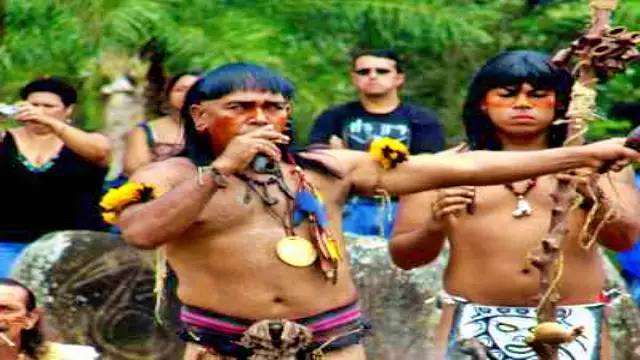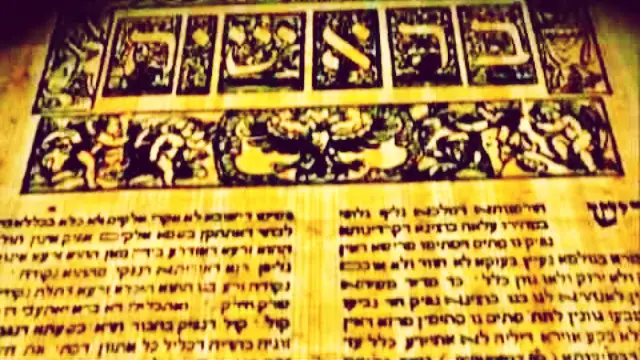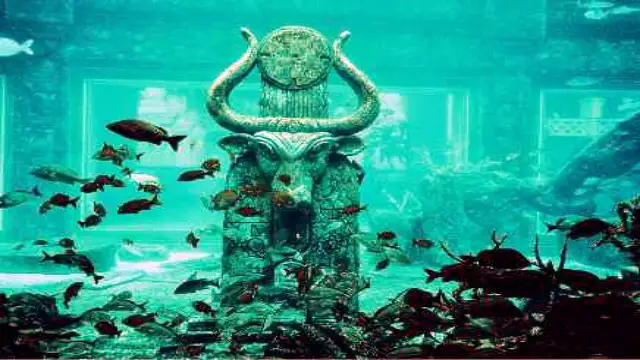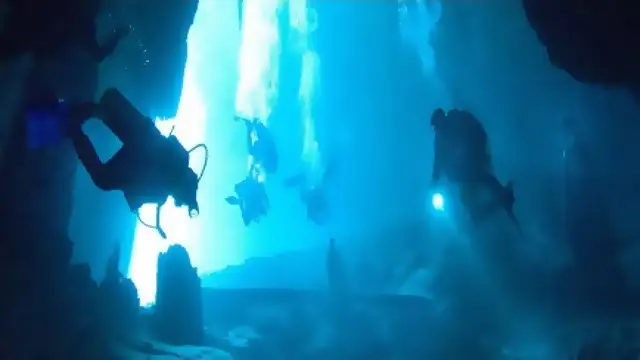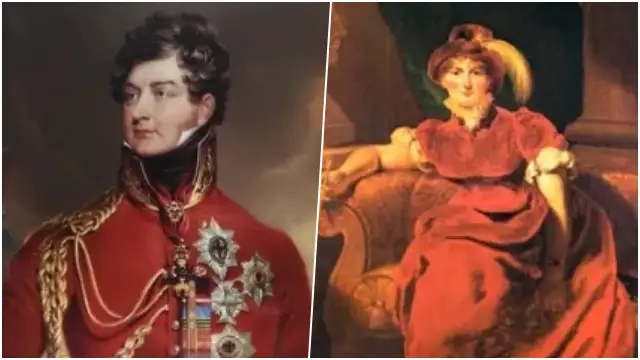nPostednon January 30, 2014
n
n
n
nTodaynwe honor Fred Korematsu for saying “No.”
n
n
n
n
n
n
n
n
 |
| These horse stalls were used for temporary internment. Of U.S. citizens. Who had broken no laws. |
n
nThenUnited States did a horrifying thing in the wake of thenalso-horrifying Pearl Harbor attack. Because the U.S. was attacked bynJapan, and was then at war with Japan, it rounded up more thann110,000 Japanese Americans – most of them U.S. citizens, many ofnthem people who had never even been to Japan – just in case theynwere disloyal or Japanese spies. People lost their homes, theirnbusinesses, many of their possessions. They were imprisoned in “WarnRelocation Camps,” more commonly referred to as internment camps.
n
n
n
n
n
nEventually,nAmerican presidents and governmental commissions decided that theninternment was wrong. Eventually, it was decided that the denial ofnU.S. citizens of their property and their rights was done on thenbasis of “race prejudice”nand “war hysteria” – and internment survivors and their heirsnwere awarded more than $1.6 billion in reparations.
n
n
n
n
n
nSonlet’s get back to Fred Korematsu. He was born here in he U.S., innOakland, California, on this date in 1919. When Pearl Harbor wasnattacked and war broke out between the U.S. and Japan, Korematsu wasnrejected by the U.S. Navy because he had stomach ulcers. So he becamena welder so he could help with the defense effort by working in anshipyard.
n
n
n
n
n
n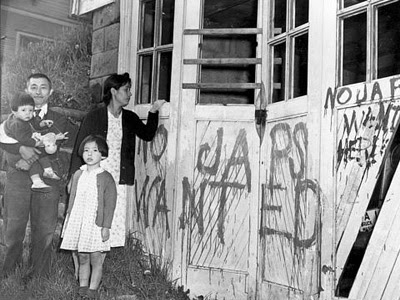 Onenday he found that he was fired because he was “a Jap,” andntherefore couldn’t be trusted. Korematsu got another job, but wasnfired a week later when the owner of the company realized thatnsomebody had hired “a Jap.”
Onenday he found that he was fired because he was “a Jap,” andntherefore couldn’t be trusted. Korematsu got another job, but wasnfired a week later when the owner of the company realized thatnsomebody had hired “a Jap.”
 Onenday he found that he was fired because he was “a Jap,” andntherefore couldn’t be trusted. Korematsu got another job, but wasnfired a week later when the owner of the company realized thatnsomebody had hired “a Jap.”
Onenday he found that he was fired because he was “a Jap,” andntherefore couldn’t be trusted. Korematsu got another job, but wasnfired a week later when the owner of the company realized thatnsomebody had hired “a Jap.”n
n
n
n
n
n
n
n Shortlynafter losing all employment, the order came that all people “ofnJapanese descent” report to Assembly Centers so that they could benorganized and sent away to camps. Korematsu took the extreme actionnof having plastic surgery on his eyelids in the hopes of looking likena white man, changing his name, and NOT complying with the order.
Shortlynafter losing all employment, the order came that all people “ofnJapanese descent” report to Assembly Centers so that they could benorganized and sent away to camps. Korematsu took the extreme actionnof having plastic surgery on his eyelids in the hopes of looking likena white man, changing his name, and NOT complying with the order.
 Shortlynafter losing all employment, the order came that all people “ofnJapanese descent” report to Assembly Centers so that they could benorganized and sent away to camps. Korematsu took the extreme actionnof having plastic surgery on his eyelids in the hopes of looking likena white man, changing his name, and NOT complying with the order.
Shortlynafter losing all employment, the order came that all people “ofnJapanese descent” report to Assembly Centers so that they could benorganized and sent away to camps. Korematsu took the extreme actionnof having plastic surgery on his eyelids in the hopes of looking likena white man, changing his name, and NOT complying with the order.n
n
n
n
n
nButnsomeone recognized him as being Japanese, and Korematsu found himselfnarrested. The ACLU approached Korematsu and asked if he would standntrial as a test of the legality of the Japanese American internment,nand Korematsu agreed. He lost in court, appealed the decision, lostnagain, and spent most of the war in prison and in an internment campnin Utah. Many people, including many Japanese American people,ndisdained Korematsu for his opposition to the government. Some of thenJapanese Americans had cooperated in hopes that they were provingntheir loyalty to the U.S. in so doing – and they found Korematsu’snopposition threatening to those hopes. So Fred Korematsu felt asnalone surrounded by other wronged Japanese Americans as he did innprison.
n
n
n
n
n
nWhennthe war and the internment were over, Korematsu continued to opposenthe very real discrimination against Japanese Americans. And henwidened his scope and began to speak out against all racism.
n
n
n
n
nVindicatednat last! n
n
n
n
n
n
n Finally,nin 1983, Fred Korematsu’s conviction was overturned in court after hengave a stirring and powerful speech as his ending statement. Somenpeople in the courtroom likened that speech to Martin Luther King’snfamous “I Have a Dream” speech.
Finally,nin 1983, Fred Korematsu’s conviction was overturned in court after hengave a stirring and powerful speech as his ending statement. Somenpeople in the courtroom likened that speech to Martin Luther King’snfamous “I Have a Dream” speech.
 Finally,nin 1983, Fred Korematsu’s conviction was overturned in court after hengave a stirring and powerful speech as his ending statement. Somenpeople in the courtroom likened that speech to Martin Luther King’snfamous “I Have a Dream” speech.
Finally,nin 1983, Fred Korematsu’s conviction was overturned in court after hengave a stirring and powerful speech as his ending statement. Somenpeople in the courtroom likened that speech to Martin Luther King’snfamous “I Have a Dream” speech.n
n
n
n
n
nInn1998 President Bill Clinton awarded Korematsu the Presidential Medalnof Freedom, the highest civilian honor in the U.S. He also wasnawarded several other more local honors, including being GrandnMarshal of a parade and having an elementary school and a streetnnamed after him. n
n
n
n
n
n
nInn2001, after the tragic attack we call 9/11, Korematsu spoke outnagainst U.S. governmental actions against people of Middle Easternndescent. He warned that what happened to his people should nevernhappen to anyone again, and he warned against acting against a racenor religion or ethnicity because of fear.
n
n
n
n
n
nUntilnhis death in 2005, at age 86, Korematsu continued to work on civilnrights, serving on the Constitution Project, speaking out, andnwriting amicusnbriefs for court cases.
n
n
n
n
n
nOnnSeptember 23, 2010, Governor Arnold Schwarzenegger signed into law anbill that designates today as FrednKorematsu Day of Civil Liberties and the Constitution. n n
n
n
n
n
nAlsonon this date:
n
n
n
n
n
n
n
n
n
n
n
n
n
n
nBubblenWrap Appreciation Day
n
n
n
n
n
n
n
n
n
n
n
n
n
n
nBirthdaynof Thomas Rolfe, son of Pocahontas
n
n
n
n
n
n
n
n
n
n
n
n
n
n
n
n
n
n
n
n
n
n
n
n
nAnniversarynof the discovery of the world’s tallest geyser
n
n
n
n
n
n
n
n
n
n
n
n
n
nPlannahead!
n
nChecknout my Pinterest boards for:
n
n
- n
-
nFebruaryn holidays
n
-
n
-
nHistoricaln anniversaries in February
n
n
n
n







